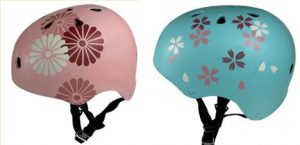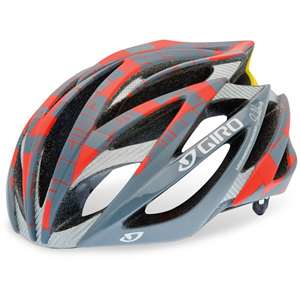Like Voldemort, cycle helmets in New Zealand are almost a topic you dare not speak by name, unless you want to see some fireworks in social media and a lot of energy expended for relatively little gain it seems. We’ve touched on it occasionally in Cycling in Chch, and here’s an early entry from occasional contributor CMH in July 2012. Probably the most important message is in the title; like wearing sunscreen and a hat on a sunny day to prevent melanoma, there is a difference between encouraging the practice vs making it compulsory…
I’m writing this here because I seem to be writing something like it often recently thanks to Aaron Keown’s comments in the media recently!
All other things being equal, I agree, it is better to wear a helmet when cycling than when not. However, I’m much more doubtful about making it compulsory, although it may be OK to make it compulsory for kids to wear them.
When cycle helmet legislation came in in NZ,
1) Most cyclists were already wearing helmets (they had to be before it was possible to bring in). I was one of them.
2) Cyclist numbers dropped significantly after it came in. Figures across the world show that making cycle helmet wearing compulsory leads to drops of about 33% in cyclist numbers. Having fewer cyclists on the road makes it more dangerous on a per cyclist basis (lots of research to support this).
 Research into the benefits of cycle helmet legislation in relation to head injuries is inconclusive – in some places they seem to be worse after the legislation is brought in and in some they are better but all studies (both +ve and -ve) have been questioned …But it’s not conclusively great!
Research into the benefits of cycle helmet legislation in relation to head injuries is inconclusive – in some places they seem to be worse after the legislation is brought in and in some they are better but all studies (both +ve and -ve) have been questioned …But it’s not conclusively great!
Fewer people cycling means fewer health benefits from having the regular exercise and actually I suspect that the fewer children and teenagers riding bikes, the less experience they have on roads and so, when they come to drive cars, they don’t have the same judgement – these are costs that are never included in these analyses.
One might also argue that because we have a law requiring cycle helmets to be worn, cycling is likely to be seen as more dangerous than other activities, when in fact it is safer than most. This will make it more likely that because cycling is seen as dangerous, fewer people will do it or will let their kids do it.
It’s also quite clear that many people take more risks when wearing safety gear – so NZ rugby players get no more injuries than American Football players despite wearing a lot less protective gear. Certainly that came though in my research with mountain bikers some years ago.
Requiring cycle helmets also makes the idea of public cycle hire schemes like those seen overseas much less attractive (would you want to wear a helmet that has had lots of different wearers?)
Also, if we are really worried about preventing head injuries, we should be wearing helmets in cars, on skis and in lots of other places where it is not done but there are more injuries occurring.
So yes, by all means wear a cycle helmet, encourage others to do so and make your kids wear them. But the arguments for making it compulsory are not that strongly supported by empirical research. Because human behaviour is not straightforward, all other things are NOT equal.
At a community level or a NZ level, there may be more benefits in not having cycle helmet legislation even though there are benefits of wearing one at an individual level. I’ve just replaced mine after my old one saved me from a good head bang a few weeks back.
Does having a mandatory bike helmet law in NZ work?


Completely agree on all points. Helmet wear shouldnt be compulsory. If I bike to the shops 2k away I dont feel i need to wear my helmet. If I ride to work via Memorial Ave I will be wearing my helmet.
Side note, Ive been cycling to school and work for over 30 years, never fallen on my head luckily.
The answer to the question should you wear a helmet when cycling might be it depends. They might not provide much safety if you are cycling in Hagley Park or riding the Little River Trail. However, if you are cycling on Blenheim Road you might be (feel) safer when you wear a helmet. A helmet should be a no-brainer when you are mountain biking. But to what extend do helmets prevent head injuries and to what extend do they increase the chances of neck injuries? Are helmets the ‘ambulance at the bottom of the cliff” and does the insistence to wear detract from preventing those accidents took place in the first place? And does the assumed provided safety weigh up against the effect of less people cycling because of the mandatory helmet law? The helmet legislation was introduced without debate in Parliament or a hearing in a select committee. After 25 year is it perhaps time to look at this law again and debate the advantages and disadvantages again, guided by the latest science on this topic?
Skiing is a classic example of how voluntary works, these days a vast majority of skiers / boarders wear helmets, through peer pressure & signage etc, the % was a lower say 10 years ago. On a really hot day in a low risk situation you can happily choose not to wear one, I’m so much in the habit now I’m not sure if I could ski without one & the kids have to wear one for lessons. Basically voluntary works for skiing.
Yes , common sense, reason, and peer pressure can work wonders. Teaches personal responsibility too. Social media does not vilify any skier (nor the entire skiing fraternity for that matter ) who chooses not to wear a helmet whilst skiing. For bikes it is a different story. The helmet law has created a flash point to fuel the bike vs cars debate ( read hatred here ) and like the vaccination problem, misinformation, emotion and division over-ride most rational considerations.
Take this scenario, a middle aged or elderly lady puts on her cycle helmet, which she doesn’t like wearing, and cycles to her local shop on a footpath wide enough for bikes & walkers. She barely reaches 15 kmh. She is overtaken by a younger person on an E scooter doing speeds of beyond 40 kmh. By law she has to wear a helmet but he doesn’t.
Sometimes it seems that the younger person may have one or two extras on their scooter who may or may not be very very young , as well.